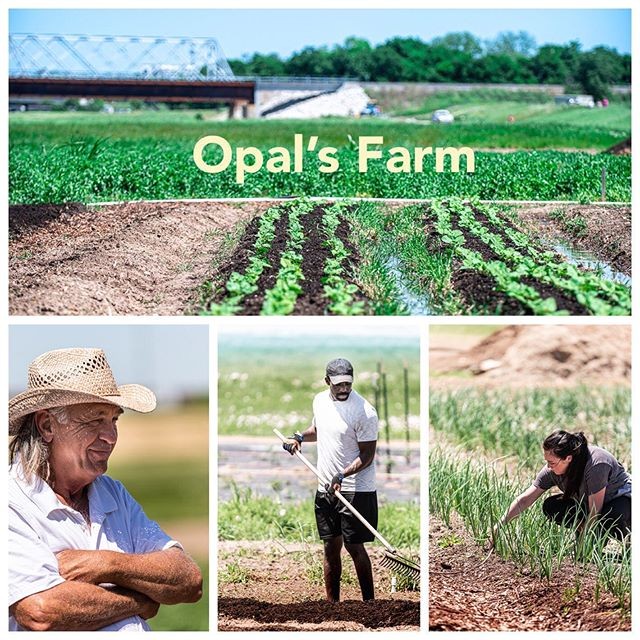We were lucky to catch up with Gregory Joel recently and have shared our conversation below.
Alright, Gregory thanks for taking the time to share your stories and insights with us today. Let’s start with the story of your mission. What should we know?
Several years ago, our namesake, Ms. Opal Lee was President of the Community Food Bank, located in the United Riverside neighborhood of Fort Worth. She had asked a number of clients if they would be interested in farming and growing healthier food for themselves. Many said they would. Ms. Opal spoke with some of her connections on the Tarrant Regional Water District (TRWD) Board about setting aside some land for an urban farm. The Board was interested and said they would provide some acreage on the floodplain.
The proposal was met with great interest by a number of people, but implementation proved difficult. In 2018, I had the privilege of meeting Ms. Opal (how that came about is another story) and became the Farm Manager for five acres located on the east bank of the Trinity River across from Downtown Fort Worth. We worked for about six months researching food insecurity and food access issues locally. We discovered that Tarrant County ranks in the Top Ten counties in the US for food insecurity. Moreover, if we were to look at East and Southeast Fort Worth, we found seventy-two square miles and only three grocery stores. Our mission became crystal clear – take organically grown fresh produce to neighborhoods defined as food deserts by the USDA (there are over forty in Fort Worth alone).
Access to healthy food is a human right. A right taken away from neighborhoods where the only options are convenience and dollar stores selling highly processed foods full of empty calories. It’s no wonder that these neighborhoods have chronic illnesses and poor health outcomes well below the state average. Never mind the plethora of issues that arise from food insecurity – poor education, poverty, and limited opportunities.
This basic human right to healthy food drives the first part of our mission – to address food access beginning with the neighborhoods closest to us. That unlocked a second part of our mission – education. Many residents in these food deserts (a misnomer but more on that another time) have forgotten the importance of fresh food and how to cook it. We work with Blue Zones Fort Worth, the Tarrant Area Food Bank, and Grow SE to give healthy cooking demonstrations. Perhaps the most important part of our educational component is teaching community members how to grow their own food in a sustainable, healthy manner.
The third part of our mission ties it all together – building community! Something special happens when we work the soil and share the fruits of our labor with one another. Breaking bread together is a powerful way to break down barriers to understanding each other. Food stimulates conversation that ultimately builds relationships and strong communities. That is the end goal for all of Unity Unlimited, Inc. – to cross racial, cultural, social, economic, and ethnic boundaries keeping us divided.
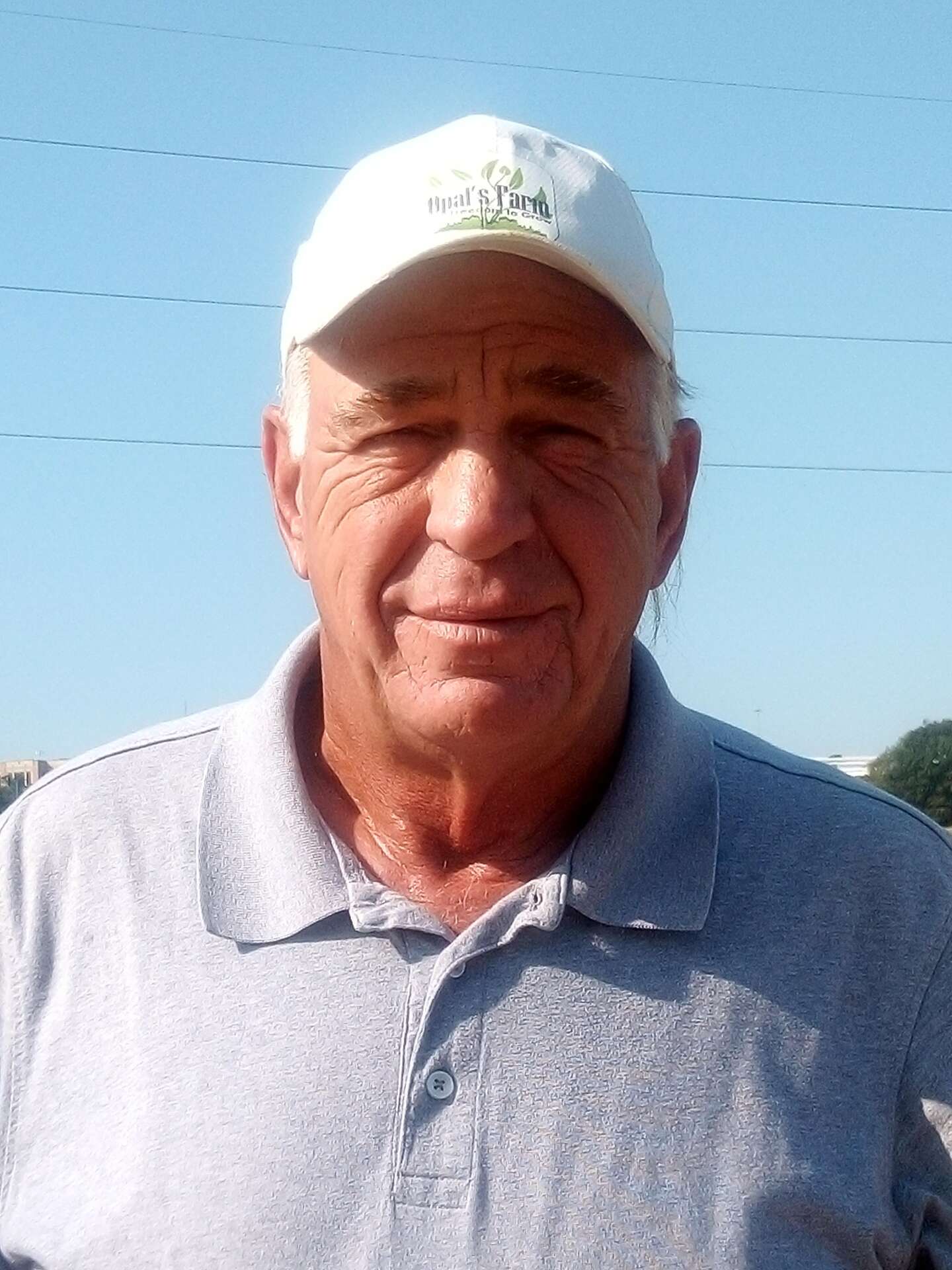
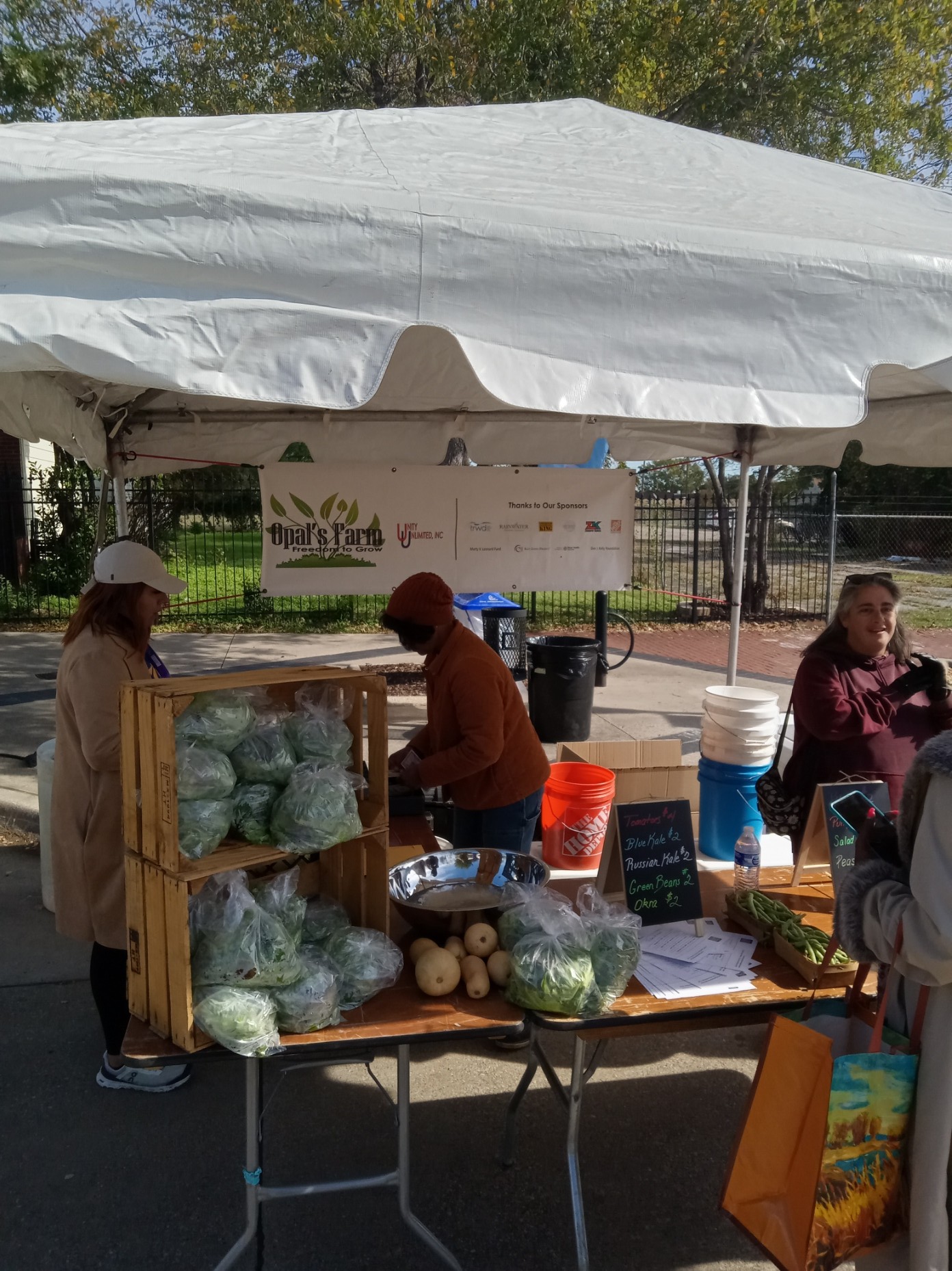
Great, appreciate you sharing that with us. Before we ask you to share more of your insights, can you take a moment to introduce yourself and how you got to where you are today to our readers
I never thought I’d be a farmer. I grew up in Fort Worth, a city boy (although I spent my summers growing up at my uncle’s ranch in south Texas) and spent my high school and college years in Colorado. I went to college on the ten-year plan and in the years following I worked as a musician, a writer, a real estate broker, a DJ for a small country station, operations manager for building supply companies, a manufacturing firm, and a couple of staffing companies. I had two hemorrhagic strokes and surgery that limited my ability to work for a couple of years. I lost my house, my income, and sense of self, but I had a lot of time to think about what was really important in life.
My friend and mentor, Jim told me that the cure to self-pity was to help others. Once I was able to start working again, I decided that I could best be of service trying to offer job opportunities to others by starting my own organic landscaping business. I volunteered with several community garden projects and knew that that was where my heart was. I liked working in the soil. The big moment came several years ago when I was building a community garden in Como. A local after school and summer programs for some of the neighborhood young men came out to help with the first harvest. A young man about twelve or thirteen pointed and asked, “What’s that?” His question thoroughly rocked my world. He had pointed to a tomato, and everyone knows what tomatoes are, right? “It’s a tomato”, I replied.
His answer still rings in my ears. “I thought they came from cans”. I pulled one of the vines, brushed it off and offered him a bite. He scrunched up his face and shook his head. I cajoled and dared until he finally took a bite. If you had seen the change that came over his face when he tasted a real tomato, then you might understand why I do what I do. He grinned and said, “Farmer Greg, can I take some home?”
In many ways that sums up what we do at Opal’s Farm. We grow food and change people’s lives. When we started in 2019, we had donated land, donated tools, donated seed, and no money in the bank. We’ve grown to three employees, a small core of volunteers, and doubling yields in produce each year. Ms. Opal Lee often reminds me that “we’ve done so much, with so little, for so long that we can do anything with nothing”!
You can keep up with the farm on Facebook and @opalsfarm pn Instagram
Can you open up about a time when you had a really close call with the business?
I went without being paid for our first year. My wife and I have a small retirement income and I made a comfortable living from my contracting and freelance writing. When we started Opal’s Farm, I finished what jobs were in the pipeline and devoted full-time to Opal’s Farm. By October of 2019, we had burned through our small savings, and we were facing foreclosure on our home. I came home from the farm and told my wife that I had really screwed up by starting the farm. I needed to get a “real” job. You know, one with a paycheck.
Margaret, my wife, took my hand, looked me in the eye and said, “We prayed about this. Give it another month before you decide to quit. I protested that we were going to lose the house, to which she said, “We had a roof over our heads before we bought this place. It’ll be okay”.
I got up the next morning and at 8:00 AM the phone rang. It was our Executive Director, Dione Sims. She informed me that we had received a grant from Visit FW that was enough to pay all my bills and buy presents for the approaching Christmas holiday. I’ve never missed a check since then.
I went home that evening and, needless to say, God and I had a little chat. I agreed I would take care of the farm and getting the food to the right folks and let Him worry about the rest. The farm is a testament to faithfulness and doing the next right thing.
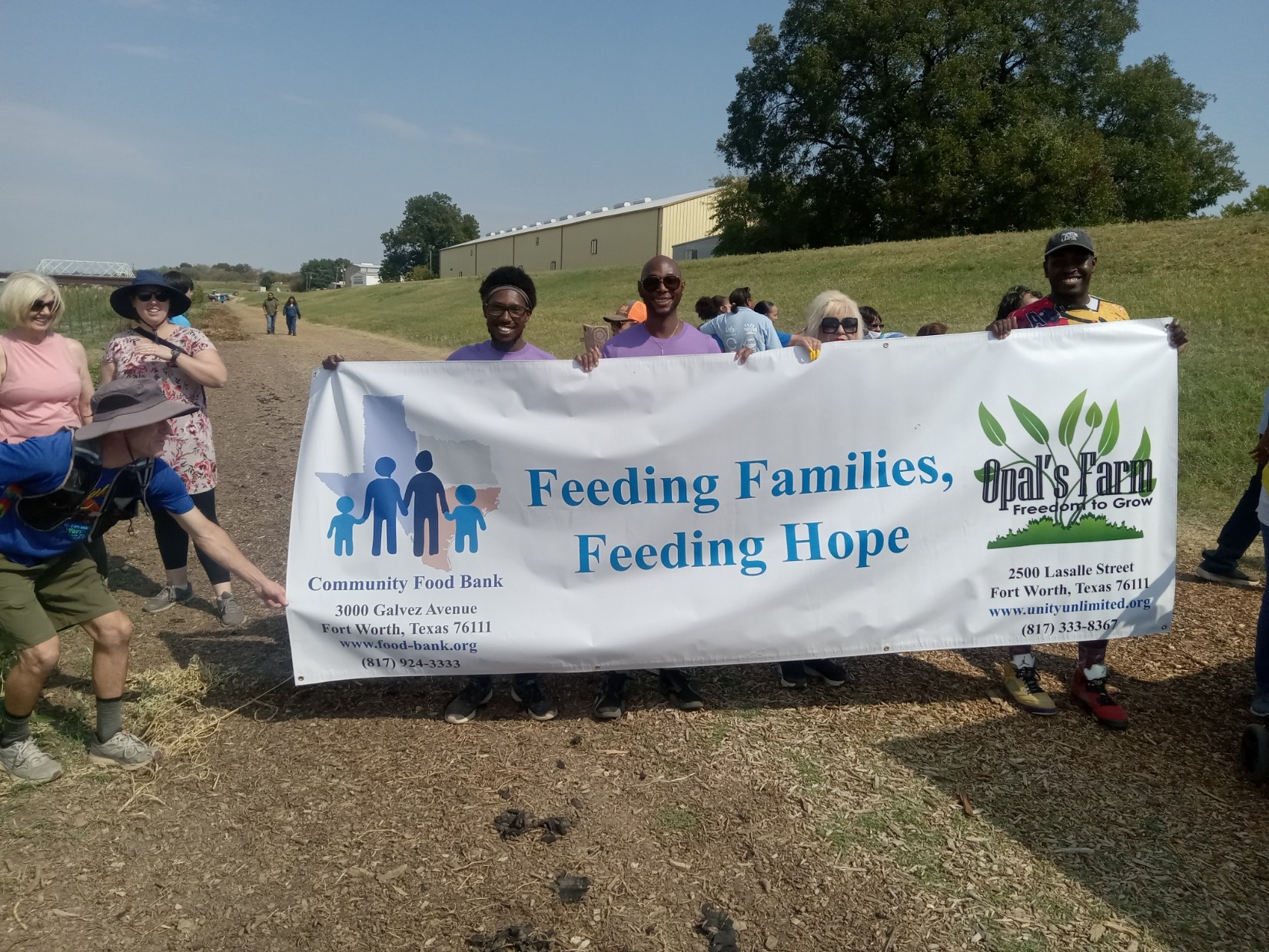
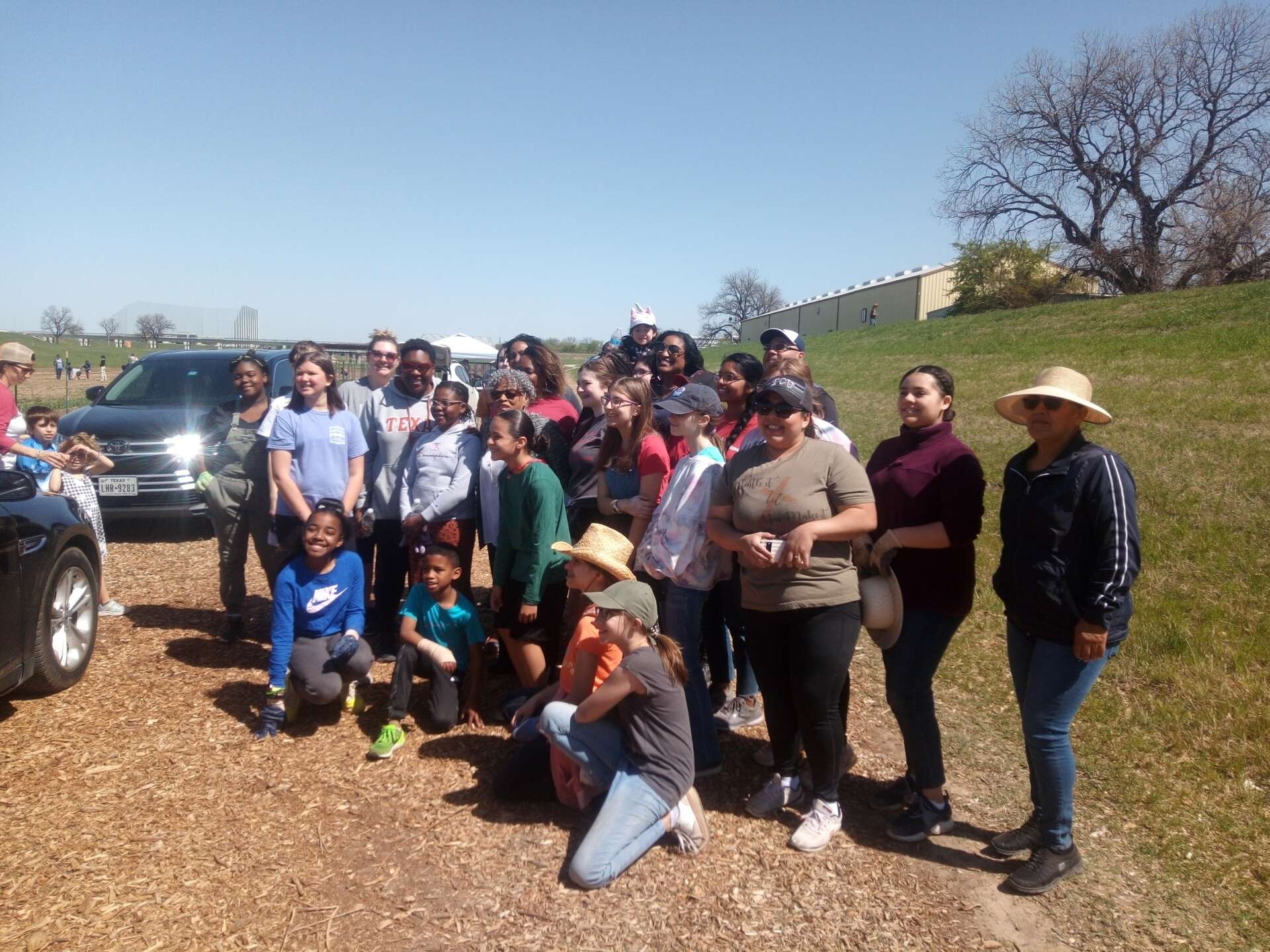
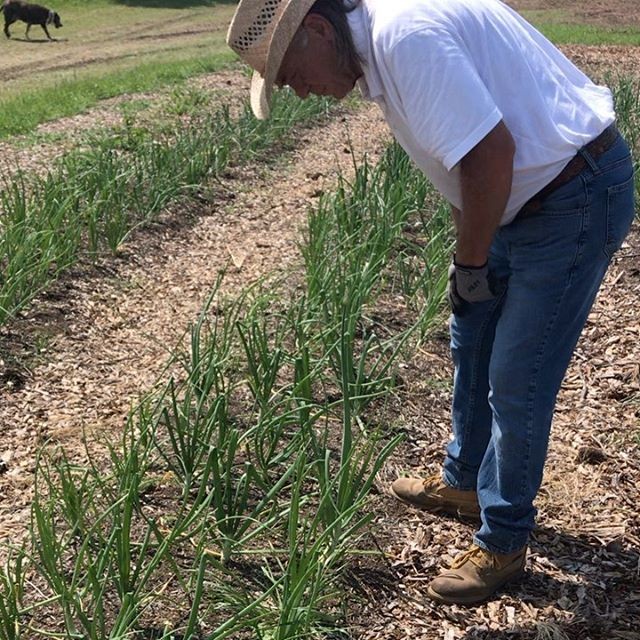
We’d love to hear about you met your business partner.
My youngest son, Jeremy, was (he died in 2020) an up-and-coming artist both regionally and nationally. A young couple were building an art collective at the old Incinerator project in SE Fort Worth. The couple mentioned they were looking for a farm manager for this urban farm they had planned. Jeremy mentioned that they might want to talk to me as I had some experience with community gardens. They asked him to have me call and I had several meetings with them about the project. Suddenly, they quit returning phone calls. When I mentioned I was having problems getting hold of them Jeremy said you might want to wait until Wednesday to call again.
I was stumped. Jeremy informed me that he couldn’t say anything but there was an article I needed to read in the next edition of Fort Worth Weekly. The article that appeared was very unfavorable to the couple who had now dropped all their projects and taken their website down. The article mentioned that they had used Unity Unlimited and Ms. Opal’s name on some financial papers and that the farm was Ms. Opal’s plan. I wrote a letter to Unity Unlimited and several weeks later I got a call from Ms. Opal. She asked me if I would meet her at a bible study at Baker Chapel A.M.E. and afterwards, we agreed that I was in the right place. We are a non-profit urban farm, but we are also a family farm. Unity and everyone associated with it is like family.
Contact Info:
- Website: www.unityunlimited.org
- Instagram: @opalsfarm
- Facebook: Opals Farm
- Linkedin: Opals Farm
- Twitter: @opalsfarm


